
THREAD: irans nuclear talks breakthrough job...
LifeLine™ Media threads use our sophisticated algorithms to construct a thread around any topic you want, providing you with a detailed timeline, analysis, and related articles.
News Timeline

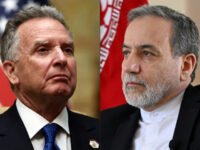
US-IRAN TALKS in Oman: A Hopeful Step or Dangerous Gamble?
— A significant meeting took place in Oman between U.S. and Iranian officials. Special Envoy Witkoff and U.S. Ambassador Ana Escrogima met with Iranian Foreign Minister Dr. Abbas Araghchi, hosted by Omani Foreign Minister Said Badr in Muscat. The talks were described as positive, with the U.S. thanking Oman for its support.
Special Envoy Witkoff highlighted President Trump’s directive to resolve differences through dialogue if possible, noting the complexity of the issues at hand. The meeting was seen as a step forward toward a mutually beneficial outcome, with both sides agreeing to meet again next Saturday.
President Trump stressed the importance of these talks alongside Israeli Prime Minister Benjamin Netanyahu last Monday, stating that Iran must not have nuclear weapons. He expressed hope for a diplomatic solution but warned that failure could lead to “very dangerous territory,” suggesting Iran would face “great danger” if talks failed.
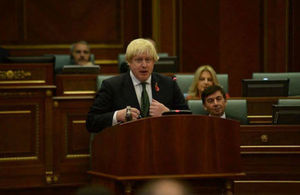
UK’S URGENT CALL: Kosovo-Serbia Peace Talks Needed NOW
— The UK Foreign Secretary urges Kosovo and Serbia to advance their peace talks. This call highlights the UK’s commitment to fostering dialogue for regional stability. The tensions have been ongoing since Kosovo declared independence in 2008.
The UK has a history of facilitating discussions between these nations, focusing on resolving territorial disputes and issues of sovereignty recognition. The Foreign Secretary stressed that successful talks are vital for both their relations and Europe’s security.
Recent events in the Balkans have raised fears of renewed conflict, making the UK’s involvement crucial. The government plans to take a more active role in these negotiations, aiming to promote peace and cooperation in the region.

IRAN’S Nuclear Threat: A Dangerous Escalation
— Iran has filed a complaint with the United Nations Security Council over President Donald Trump’s recent warnings. Trump threatened bombing and more tariffs if Iran rejects a nuclear deal. His remarks have heightened tensions between Tehran and Washington during ongoing talks about Iran’s nuclear capabilities.
In reaction to Trump’s comments, Iranian leaders vowed to boost their defense measures. Supreme Leader Ali Khamenei’s adviser said Iran would have “no choice” but to seek nuclear weapons if attacked. This statement highlights the fragile relations between the two nations.
This issue is part of larger geopolitical tensions involving Iran’s nuclear ambitions and U.S. foreign policy under Trump. The heated words from both sides could lead to more military escalations in an already unstable region, raising fears of conflict and its impact on global security dynamics.
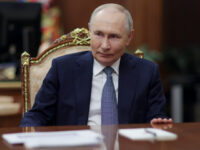
PUTIN’S Bold Peace Plan: Brics And North Korea In Ukraine Talks?
— Russian President Vladimir PUTIN has proposed a fresh approach to peace talks in Ukraine, suggesting the expanded BRICS group play a role. This collective now includes Egypt, Iran, UAE, and Ethiopia. In 2024, thirteen more nations joined as "partner countries.
PUTIN’s comments left it unclear if all new members and partners would join the talks. Including North Korea could complicate things due to its military support for Russia against Ukraine. South Korea reported that North Korea sent troops and weapons to help Russia’s war efforts.
Amid these events, North Korean leader Kim Jong-un plans another visit to Russia this year. Russian Deputy Foreign Minister Andrew Rudenko confirmed the visit is being arranged but didn’t provide a date. Kim visited Russia in 2019 and 2023, strengthening ties between the two countries.
During his Murmansk visit, PUTIN suggested replacing Ukrainian President Zelensky with an interim international administration under UN oversight for peace accords and elections. He proposed including the U.S., European countries, and Russia’s allies in this temporary governance structure for Ukraine.
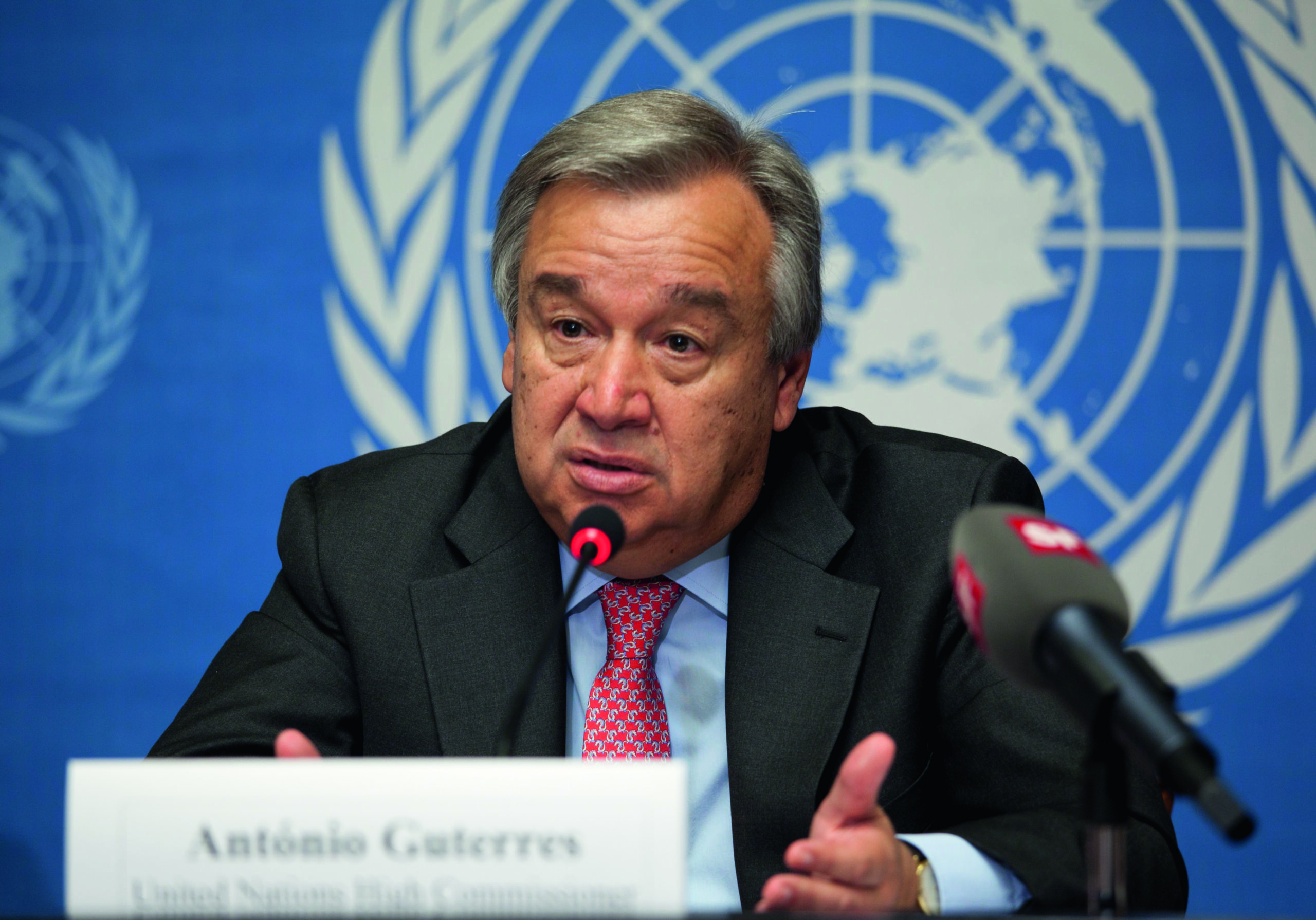
CYPRUS PEACE Talks Resume: A NEW Hope Or OLD Struggles?
— U.N. Secretary-General Antonio Guterres hosted informal talks in Geneva to revive the stalled Cyprus peace process. Greek Cypriot President Nikos Christodoulides and Turkish Cypriot Leader Ersin Tatars participated, along with diplomats from Britain, Greece, and Turkey. The island has been divided since Turkey’s 1974 invasion after a failed coup by pro-Greek union supporters.
Turkey is the only nation recognizing the Turkish Cypriot declaration of independence and maintains over 35,000 troops in northern Cyprus. Although Cyprus joined the EU in 2004, only the Greek Cypriot south enjoys full membership benefits under its internationally recognized government.
Guterres announced new talks for July and plans to appoint a special U.N. envoy to promote solar energy development in the region. This move comes amid accusations from a leader of the Patriotic Turkish Cypriot Movement that Ersin Tatars follows Turkey’s directives for partitioning Cyprus into two states without truly representing local interests.
Turkish Foreign Minister Hakan Fidan and Greek Foreign Minister George Gerapetritis attended Tuesday’s discussions with Britain’s Foreign Office Minister Stephen Doughty present as well. The renewed dialogue aims to address decades-long tensions on this strategically important Mediterranean island.

CYPRUS PEACE Talks Resume: Can Decades of Division Finally Heal?
— U.N. Secretary-General Antonio Guterres hosted informal talks in Geneva to revive the Cyprus peace process, stalled for nearly eight years. Greek Cypriot President Nikos Christodoulides and Turkish Cypriot Leader Ersin Tatar attended, alongside diplomats from Britain, Greece, and Turkey. The Mediterranean island has been divided since Turkey’s 1974 invasion following a failed coup by pro-Greece supporters.
Turkey alone recognizes the Turkish Cypriot declaration of independence and maintains over 35,000 troops in the northern third of Cyprus. Despite Cyprus joining the European Union in 2004, only the Greek Cypriot south benefits fully from EU membership. This division remains a significant point of contention in ongoing peace efforts.
Recently, a leader from the Patriotic Turkish Cypriot Movement criticized Ersin Tatar for allegedly pushing Turkey’s agenda to partition Cyprus into two states. This accusation highlights internal disagreements among Turkish Cypriots regarding representation and interests within peace negotiations.
Turkish Foreign Minister Hakan Fidan and Greek Foreign Minister George Gerapetritis participated in Tuesday’s discussions along with Britain’s Foreign Office Minister Stephen Doughty. These talks aim to address long-standing issues that have hindered reconciliation on this divided island for decades.
— Ukraine and US officials initiate talks to end war with Russia The discussions come as Russian air defenses intercepted over 300 Ukrainian drones in a single day
— Ukraine and US officials initiate talks to end Moscow’s war The discussions come shortly after Russian air defenses intercepted over 300 Ukrainian drones in a single day
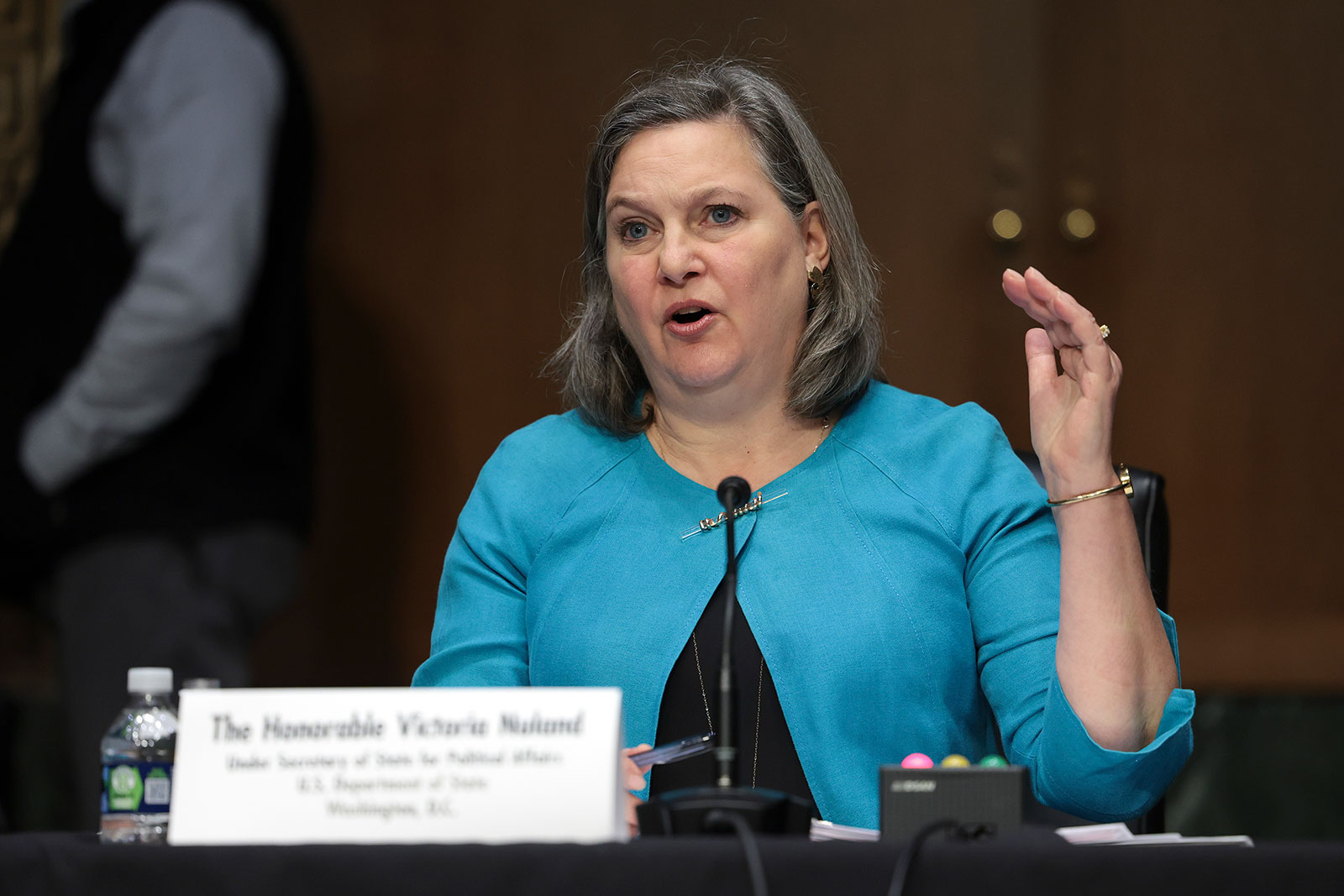
US RESTARTS Military AID to Ukraine: A Bold Move Amid Ceasefire Talks
— The UNITED STATES has agreed to restart military aid and intelligence sharing with Ukraine. This decision comes as Kyiv considers a U.S.-proposed 30-day ceasefire with Russia. The announcement marks a pivotal moment in U.S. support for Ukraine amid ongoing conflict.
A joint statement from U.S. and Ukrainian officials confirmed the resumption of security support. The proposed ceasefire aims to reduce hostilities and open doors for further negotiations between the involved parties, signaling a strategic shift in U.S. foreign policy toward stabilizing Ukraine through diplomacy.
This announcement arrives during heightened tensions between Ukraine and Russia, where continued hostilities threaten regional stability. Since the conflict began, the U.S.’s role has been crucial in providing both military and humanitarian assistance to Ukraine, underscoring its commitment to supporting allies against aggression.

US RESUMES MILITARY AID to Ukraine: A Bold Move Amid Ceasefire Talks
— The Trump administration has announced the immediate resumption of military aid to Ukraine. This decision aligns with Ukraine’s openness to a 30-day ceasefire, signaling a potential shift in the ongoing conflict. Delegations from both sides engaged in discussions for several hours, with more talks planned.
President Donald Trump is set to speak with Russian President Vladimir Putin about a possible ceasefire. Ukrainian President Volodymyr Zelensky has been invited back to the White House for further discussions. The Russian Foreign Ministry expressed willingness for continued dialogue with U.S. representatives, sparking hope for a peaceful resolution that respects Ukraine’s sovereignty.
Safety concerns have escalated following a tragic midair collision involving an Army helicopter and an American Airlines jet near Ronald Reagan Washington National Airport in January 2025. All 67 individuals on board both aircraft perished, prompting NTSB investigator Jennifer Homendy to urge the FAA to implement urgent safety measures immediately.
On the economic front, Asian markets are experiencing significant declines amid global sell-off trends impacting investor confidence worldwide. Japan, South Korea, and Taiwan saw market drops of about 2% as part of this broader financial downturn following the S&P 500’s worst day of the year on March 11th.
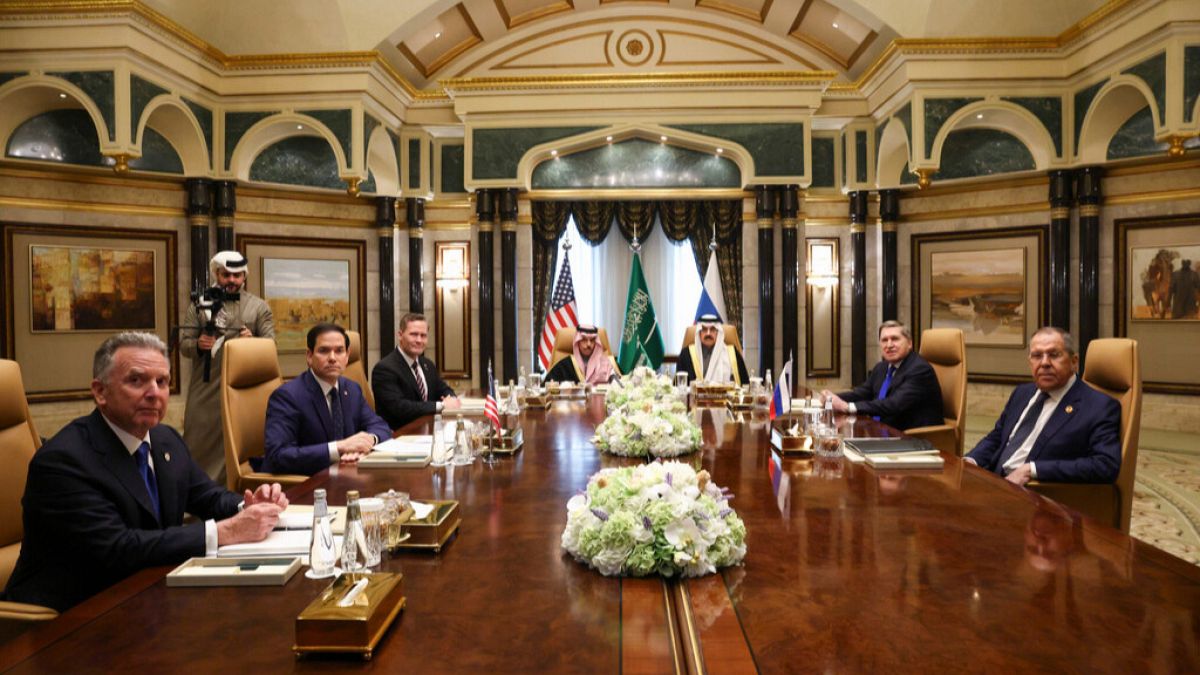
SAUDI TALKS: Ukraine’s Desperate Bid for Peace in High-Stakes Meeting
— High-stakes talks between Ukraine and the United States kicked off in Jeddah, Saudi Arabia, aiming to end Kyiv’s ongoing conflict with Moscow. This meeting follows a massive drone attack where Russian defenses shot down 337 Ukrainian drones over ten regions in Russia, resulting in two deaths and 18 injuries.
U.S. Secretary of State Marco Rubio met with senior Ukrainian officials at a luxury hotel, while Saudi Arabia’s foreign minister was present. Despite the tense atmosphere, there was no immediate comment from either side about the drone attack. The talks signal a renewed diplomatic effort after tensions rose during President Zelenskyy’s recent visit to the White House.
Ukrainian officials plan to propose a ceasefire covering the Black Sea for safer shipping routes and an end to long-range missile strikes affecting civilians. They also seek prisoner releases as part of their proposal.
Russia remains firm on its conditions for peace, demanding Ukraine abandon its NATO aspirations and recognize Russian-occupied regions as part of Russia before stopping hostilities. No concessions have been publicly offered by Moscow at this time.

— Zelensky skips US talks at Saudi peace summit The Ukrainian president will meet with Saudi Crown Prince but will not participate in the subsequent discussions
EUROPEAN UNION in Turmoil: Defense Woes Under Trump
— European Union leaders rushed to Brussels for emergency talks, worried about U.S. support under President Donald TRUMP. They focused on boosting European security and protecting Ukraine. Friedrich Merz, Germany’s likely next chancellor, and summit chairman Antonio Costa discussed quickly strengthening Europe’s defenses.
Merz pushed for easing Germany’s debt rules to boost defense spending. Meanwhile, French President Emmanuel Macron proposed using France’s nuclear capabilities to protect Europe from Russian threats. This is a big change since Trump began disrupting U.S.-Europe security ties.
Danish Prime Minister Mette Frederiksen stressed the need for more defense spending across Europe, a big shift from past budget priorities where military funding was low. Macron promised that EU countries would increase military budgets and work together on advanced weapon production in Europe.

GENETIC ENGINEERING Breakthrough: Could It Change Conservation?
— Colossal Biosciences is pushing the limits of GENETIC ENGINEERING by trying to recreate traits of extinct species like the woolly mammoth. The company aims to genetically modify living animals with features similar to these ancient creatures. CEO Ben Lamm highlights their focus on studying ancient DNA to reach this goal.
The company’s latest success involves editing genes in mouse embryos, resulting in a “Colossal woolly mouse” with long, thick hair. This marks a big step in their bold plan announced in 2021 to bring back extinct species such as the woolly mammoth and dodo bird. However, these results are not yet peer-reviewed or published in scientific journals.
While Colossal’s work is groundbreaking, it has sparked debate among scientists about its conservation value. Christopher Preston from the University of Montana argues that these projects don’t truly bring back extinct species but just mimic certain traits. The scientific community remains split on whether this approach helps conservation or is merely a novel technological feat.
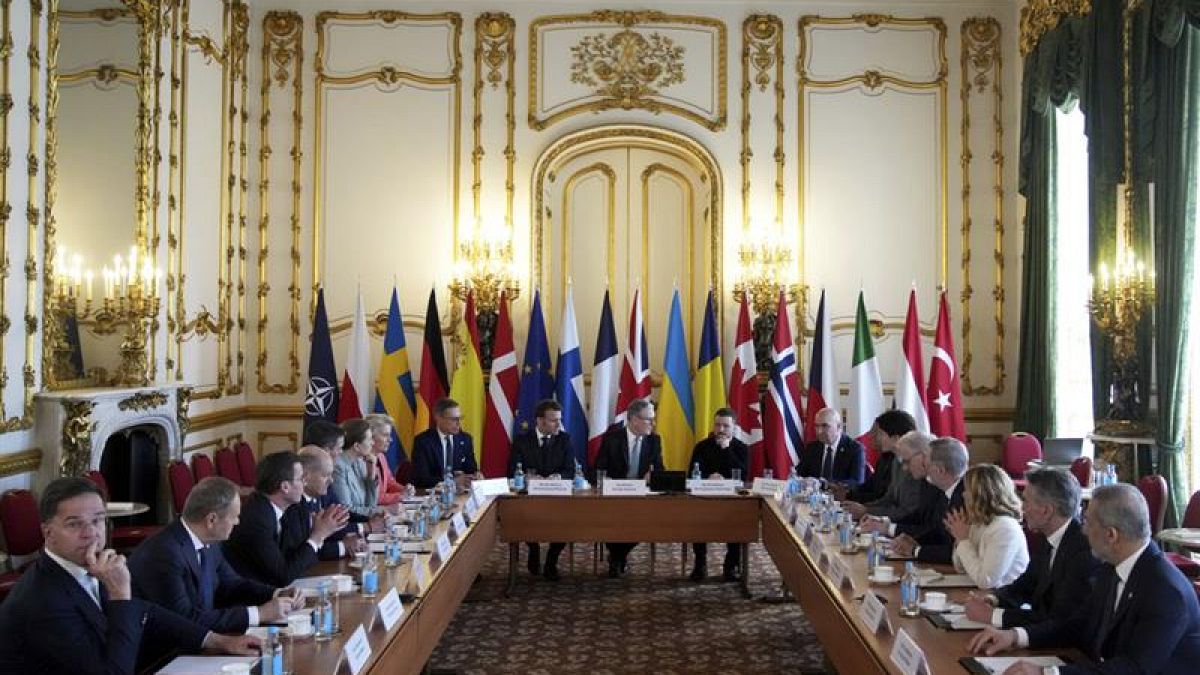
EUROPE’S Bold Move: Seizing Control in Ukraine Talks
— European leaders are eager to steer Ukraine-Russia negotiations. At a London summit, British Prime Minister Keir Starmer stressed the importance of this moment for the West. Their aim is to unify Europe’s stance as Kyiv-Washington relations worsen.
Tensions rose after Ukrainian President Zelensky met with former U.S. President Donald Trump, causing concern across Europe. The meeting reportedly alarmed European leaders who fear a change in U.S. policy could disrupt ongoing efforts in the region.
Europe wants to present a united strategy that prioritizes regional stability and security over outside influences from across the Atlantic. This move shows Europe’s intent to assert its influence and leadership in resolving the conflict effectively and independently.
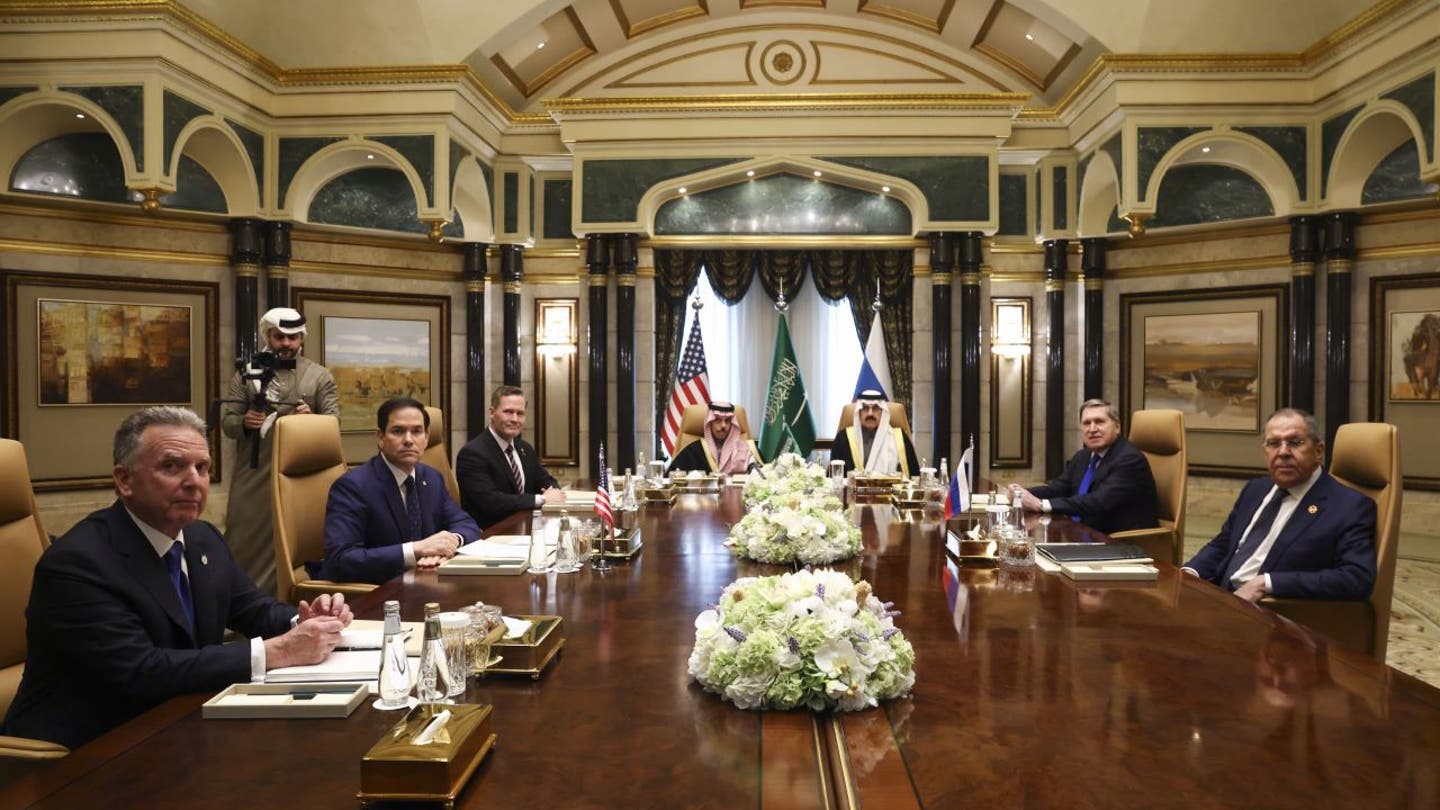
US-RUSSIA PEACE Talks: Ukraine’s Future Decided Without Input?
— U.S. and Russian officials met in Saudi Arabia to discuss a peace agreement for Ukraine, notably without Ukrainian representatives. Secretary of State Marco Rubio and Russian Foreign Minister Sergey Lavrov led the talks, exploring terms for a ceasefire and elections in Ukraine. The discussions also included the possibility of a meeting between President Donald Trump and President Vladimir Putin.
State Department spokeswoman Tammy Bruce confirmed that both sides agreed to “lay the groundwork for cooperation” on various issues beyond Ukraine. High-level teams will be appointed to work on ending the conflict in Ukraine, with new elections being a potential part of the peace deal framework. Diplomatic sources suggest that both countries view Ukrainian President Volodymyr Zelenskyy as having slim chances of re-election, which could influence negotiations.
Rep. Brian Fitzpatrick, R-Penn., expressed opposition to forced elections in Ukraine via social media, highlighting concerns over external pressure on Ukrainian sovereignty. Despite viewing Putin as a “great competitor,” U.S. officials still consider him an adversary amid these complex negotiations over Ukraine’s future stability and leadership dynamics.;

TRUMP’S Bold Move: Push for Ukraine Peace Talks After Putin Call
— Former President Donald Trump plans to start talks to end the Ukraine war. This follows a recent call with Russian President Vladimir Putin. Trump emphasized the need for dialogue and cooperation, suggesting talks could begin “immediately.”
This announcement comes as tensions rise in Eastern Europe, involving NATO and European military actions. Trump’s diplomatic approach contrasts with the current administration’s stance on the conflict, possibly signaling a new way to handle international disputes.
Successful negotiations could ease hostilities and create a peace plan, impacting U.S., Russia, and Ukraine relations. Trump’s experience may be key in brokering peace for humanitarian and geopolitical reasons.
The U.S. government has not yet responded to Trump’s proposal, leaving questions about future foreign policy under the Biden administration. The situation remains fluid as developments unfold in this breaking news story.
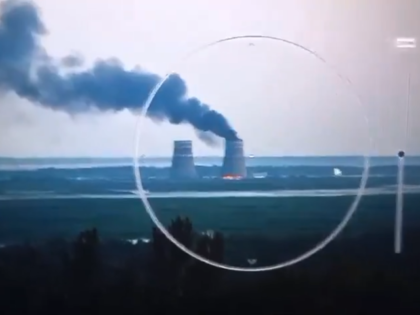
UKRAINE’S Nuclear Sites In Danger: Russian Threats Ignite Fear
— Ukraine relies heavily on nuclear power due to ongoing Russian strikes on its power grid. Over half of the country’s electricity now comes from nuclear energy. However, the unprotected nuclear switchyards, essential for transmitting this power, are at risk of attacks.
Despite warnings over a year ago, Ukraine’s Energy Ministry delayed action to secure these sites. Only recently did they start building defenses after Ukrainian intelligence pointed out potential Russian threats. Analysts say this response might be too late if an attack happens.
Oleksandr Kharchenko, a Ukrainian energy expert, warns that hitting two switchyards could cut supply for 30-36 hours and limit energy for weeks during winter. This delay in protection poses serious risks to civilian life and infrastructure resilience.
The U.N. nuclear agency has repeatedly warned about disaster potential if these switchyards are disrupted since they also help cool reactors and spent fuel at plants. Backup systems exist but are only temporary solutions during long outages, according to experts like Marcy R. Fowler from Open Nuclear Network.

ZELENSKYY’S Urgent Plea: Keep Ukraine in US-Russia Talks
— Ukrainian President Volodymyr Zelenskyy is worried about being left out of U.S.-Russia talks on the Ukraine war. He warns that excluding Ukraine could be “very dangerous.” Zelenskyy wants more direct discussions between Kyiv and Washington to plan a ceasefire.
In an interview, Zelenskyy stated that Russia avoids ceasefire talks because it sees concessions as losses while its troops have the upper hand. He suggested former President Donald Trump could pressure Russia with sanctions on energy and banking sectors. Ongoing military support for Ukraine is also crucial, he noted.
Zelenskyy’s remarks came after Trump claimed American and Russian officials are “already talking” about ending the conflict. Trump called these discussions “very serious,” though he shared few details.
Zelenskyy acknowledged ongoing contact with Trump’s team but said these talks are still at a “general level.” He expects face-to-face meetings soon to work out specific agreements to resolve the conflict.
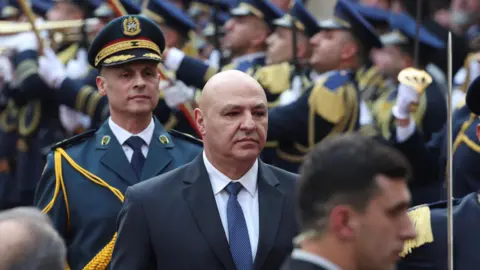
LEBANON CHAOS: 15 Lives Lost as Israel Talks Stall
— At least 15 people have died in Lebanon amid rising tensions. This violence erupted just before a deal was made to extend the deadline for Israeli troops to pull out.
The situation is tense as events unfold in the Israeli-Palestinian conflict, impacting nearby countries like Lebanon. The world is watching closely, urging for peace and aid.
This incident shows the ongoing instability in the Middle East, especially with recent clashes involving Israel and its neighbors. Calls for peace continue as the region struggles with constant conflict.

COLOMBIA CHAOS: Peace Talks Fail, Violence Erupts
— At least 80 people have died in northeast Colombia as violence surges after peace talks between the government and rebel forces collapsed. The failed negotiations have reignited fighting, putting civilians in danger and raising fears of human rights abuses.
Local leaders condemn the violence and call for international help to address this humanitarian crisis. They stress the need for new peace talks to stop more bloodshed.
Human rights groups demand immediate investigations into these tragic events and accountability for those responsible. The world community faces pressure to step in and help stabilize this troubled area.
This incident shows Colombia’s fragile peace situation and highlights ongoing challenges in solving conflicts that have plagued the nation for decades.

ISRAEL-HAMAS Ceasefire: Hopeful Breakthrough Amid Chaos
— U.S. and Arab mediators have made significant progress toward a ceasefire in the Israel-Hamas conflict. Officials report that negotiations are closer than ever to an agreement, though challenges remain. The coming days are critical for ending over 15 months of fighting in the Middle East.
A U.S. official involved in the talks expressed optimism but warned that the deal could still collapse due to unresolved issues. Previous attempts at brokering peace have stalled, leaving uncertainty about when a potential agreement might be reached.
Mediators from Qatar and U.S. envoy Steve Witkoff have been key players in pushing both sides toward a resolution. Witkoff has been actively engaging with Israeli negotiators, while Qatari mediators focus on Hamas leaders.
A draft deal is now on the table, awaiting approval from Israeli and Hamas leaders within the next 24 hours. The outcome of these discussions will be pivotal for regional stability and future peace efforts moving forward.

— LA Wildfires Threaten Hollywood Sign. Five lives have been lost and 180,000 residents evacuated as celebrities like Paris Hilton and Mandy Moore face devastating losses.

— US Dockworkers Threaten Strike Over Automation Concerns Union leaders warn that increasing automation could lead to job losses, risking major disruptions in shipping and supply chains nationwide
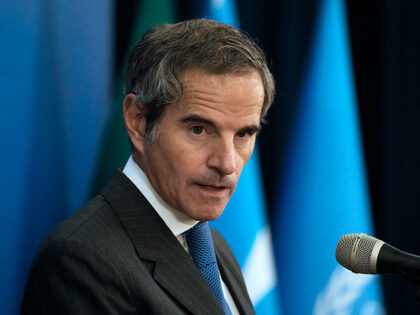
IRAN’S Nuclear Threat: Global Fears and Rising Pressure
— The world is worried about Iran’s nuclear activities. Rafael Grossi, head of the International Atomic Energy Agency (IAEA), stressed the need for “concrete, tangible and visible results” during his visit to Tehran. He urged Iran to show progress and ease tensions to possibly avoid conflict.
Grossi’s comments seem directed at Israeli Defense Minister Israel Katz’s recent statements. Katz pointed out Israel’s airstrikes in October, saying they revealed Iran’s nuclear sites to potential attacks. He claimed these actions might help remove threats against Israel.
Grossi criticized Iran for not cooperating with IAEA inspectors and increasing uranium enrichment activities. He noted that compliance with inspection rules stopped early in the Biden administration, complicating transparency efforts and resolution attempts.
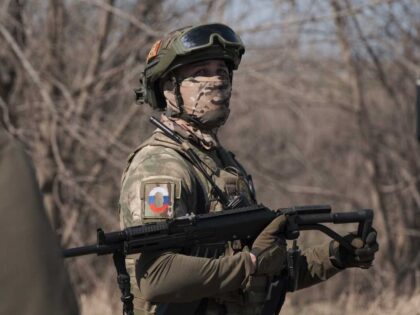
RUSSIA’S Military Losses Soar Amid Ukraine Conflict
— Britain’s Ministry of Defence reports a sharp rise in Russian military casualties, averaging 1,271 per day in September. This marks the highest daily losses since the conflict began. The increase is linked to Ukraine’s counter-invasion efforts and Russia’s aggressive tactics.
The analysis shows Russia’s casualty rate has more than doubled compared to last year’s peaks. Despite harsh winter conditions, there’s no sign of reduced conflict intensity. Over 648,000 Russian casualties are estimated since the war started, based on Ukrainian figures.
Ukraine claims it inflicted over 38,000 casualties on Russian forces in September alone and destroyed thousands of vehicles like tanks and armored units. However, Western sources often highlight Russian losses without comprehensive data on Ukrainian casualties due to limited transparency from Kyiv.
While Ukraine’s reported figures for Russian losses exceed those from Britain’s Ministry of Defence, accurate assessments are tough due to wartime secrecy. President Zelensky dismissed Kremlin claims about Ukrainian casualties as exaggerated lies earlier this year but didn’t disclose specific numbers for his own forces’ losses.
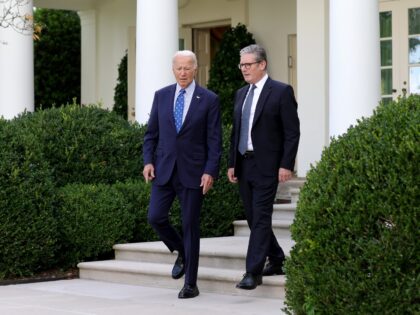
BIDEN and STARMER UNITE on Ukraine: Bold Strategy Talks at White House
— Labour leader Keir Starmer met with President Joe Biden at the White House to discuss strategy for Ukraine. They did not focus on specific capabilities.
Starmer had planned to press Biden on sending British Storm Shadow missiles to Ukraine but will now address it at the UN General Assembly.
Biden dismissed Putin’s warnings about arming Ukraine, stating he doesn’t think much about Putin and believes Putin won’t win the war. However, Biden is hesitant to provide long-range ATACMS missiles due to limited impact and stock concerns.
The leaders also talked about Gaza, with Britain recently halting arms deliveries to Israel over potential violations of international humanitarian law.

ISRAEL WARNS of Iranian Aggression Amid US Cease-Fire Talks
— Israeli Defense Minister Yoav Gallant warned that “Iran’s aggression has reached an all-time high” during a meeting with U.S. Chairman of the Joint Chiefs of Staff Gen. Charles Q. Brown on Monday. Gallant emphasized the need for cooperation to counter threats from Iran-backed Hamas and Hezbollah, highlighting Israel’s strategic position. The meeting also included IDF Chief of Staff Lt. Gen. Herzi Halevi and took place in Tel Aviv.
Despite U.S.-led efforts to broker a cease-fire deal with Hamas, no agreement has been reached as long as Israeli forces remain in Gaza security corridors. Gallant reiterated Israel’s goals: dismantling Hamas, securing the return of hostages taken on Oct. 7, and improving security along the northern border for community safety.
Since Oct. 7, the conflict has resulted in significant casualties, with Gaza’s Health Ministry claiming around 40,000 Palestinian deaths without distinguishing between civilians and terrorists killed by Israeli forces since then have also suffered losses: nearly 700 soldiers and about 1,200 civilians have been killed following Hamas attacks on Israel
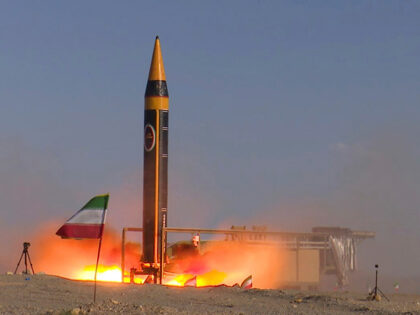
IRAN’S Nuclear Threat: Iaea Demands Compliance
— The International Atomic Energy Agency (IAEA) passed a resolution with a vote of 20-2, urging Iran to comply with its nuclear obligations. Russia and China opposed the measure, while the Biden administration reluctantly supported it despite concerns about jeopardizing nuclear deal negotiations.
A joint statement from the UK, France, and Germany emphasized the need for Iran to cooperate fully with the IAEA. The resolution followed Iran’s blocking of senior inspectors and its significant enrichment of uranium beyond limits set by Obama’s 2015 nuclear deal.
IAEA Director-General Rafael Grossi criticized Iran’s actions as “completely uncalled for” and “illogical.” Grossi visited Tehran in May to address issues including inspector bans and halted monitoring devices at nuclear sites.

RUSSIA’S Nuclear Warning: UK Military Sites in Crosshairs Amid Escalating Tensions
— Russia has heightened tensions by threatening to target UK military bases. This aggressive stance follows Britain’s decision to supply weapons to Ukraine, which Russia alleges have been used against its territory. This threat emerges as Russia prepares for President Vladimir Putin’s fifth term inauguration and the national Victory Day celebrations.
In a bold response to what it describes as Western provocations, Russia is set to conduct military drills that simulate the use of tactical nuclear weapons. These exercises are unique because they focus on battlefield nuclear capabilities, unlike typical maneuvers involving strategic nuclear forces. Tactical nuclear weapons are intended for localized impact, minimizing broader destruction.
The global community has expressed deep concern over these developments. U.N. spokesman Stephane Dujarric voiced worries about the increasing talk of nuclear arms usage, describing the current risks as “alarmingly high.” He emphasized the need for nations to refrain from actions that might lead to misjudgments or catastrophic consequences.
These events underscore a critical moment in international relations, highlighting the delicate balance between national defense and global security threats. The situation calls for careful diplomatic engagement and a reassessment of military strategies by all involved nations to prevent further escalation of tensions.

ISRAEL Stands Firm: CEASE-Fire Talks with Hamas HIT a Wall
— The latest cease-fire talks in Cairo between Israel and Hamas have ended without any agreement. Prime Minister Benjamin Netanyahu is standing firm against global pressure to stop military actions, calling Hamas’s demands “extreme.” Defense Minister Yoav Gallant accused Hamas of not being serious about peace and hinted that Israel might step up its military actions in Gaza soon.
During the discussions, Hamas emphasized that stopping Israeli aggression is their top priority. Despite some initial signs of progress, the situation remains tense with ongoing threats to peace efforts. Notably, Israel did not send a delegation to the recent negotiations, while Hamas consulted with intermediaries in Qatar before returning to Cairo for more talks.
In another development, Israel has shut down Al Jazeera’s local offices, accusing the network of anti-Israel incitement. This action has drawn attention from Netanyahu’s government but does not affect Al Jazeera’s operations in Gaza or the West Bank. Meanwhile, CIA chief William Burns plans to meet with regional leaders to try and mediate the conflict.
The closure of Al Jazeera’s offices and upcoming meetings by CIA chief William Burns highlight the complex dynamics at play as international actors seek ways to stabilize the region amidst ongoing tensions between Israel and Hamas.

PUTIN’S NUCLEAR Warning: Russia Ready to Defend Sovereignty at All Costs
— President Vladimir Putin has issued a stern warning, asserting that Russia stands ready to employ nuclear weapons if its statehood, sovereignty, or independence come under threat. This statement emerges just before a presidential vote this week where Putin is anticipated to clinch another six-year term.
During an interview with Russian state television, Putin underscored the full readiness of Russia’s nuclear forces. He confirmed that the nation is militarily and technically prepared and would resort to nuclear action if its existence or independence was threatened.
Despite his continuous threats since launching the invasion of Ukraine in February 2022, Putin refuted any plans of using battlefield nuclear weapons in Ukraine as there hasn’t been any necessity for such drastic measures so far.
U.S President Joe Biden was characterized by Putin as an experienced politician who comprehends the potential dangers of escalation. He voiced optimism that the U.S would avoid actions that could potentially ignite a nuclear conflict.

PUTIN’S NUCLEAR Warning: Russia Ready to Defend Sovereignty at ANY Cost
— In a stark warning, President Vladimir Putin has declared that Russia stands ready to employ nuclear weapons if its statehood, sovereignty or independence comes under threat. This alarming statement comes on the eve of a presidential election this week where Putin is anticipated to secure another six-year term.
During an interview with Russian state television, Putin underscored the full readiness of Russia’s nuclear forces. He confidently affirmed that from a military-technical standpoint, the nation is primed for action.
Putin further explained that according to the country’s security doctrine, Moscow would not hesitate to resort to nuclear measures in response to threats against “the existence of the Russian state, our sovereignty and independence”.
This isn’t Putin’s first mention of his willingness to use nuclear weapons since initiating the invasion of Ukraine in February 2022. However, when queried about deploying battlefield nuclear weapons in Ukraine during the interview, he asserted there was no necessity for such drastic measures.

UK-CANADA Trade Talks GRIND to a Halt: The Beef and Cheese Battle That’s Costing Billions
— The UK government has unexpectedly put the brakes on post-Brexit trade talks with Canada. This sudden move follows a two-year stalemate over beef and cheese imports and exports, which began after Britain officially left the European Union.
Trade between these nations, valued at roughly 26 billion pounds ($33 billion) per year, has mostly persisted under the initial agreement made while Britain was still an EU member. However, Canadian negotiators are feeling the heat from their own beef industry and local cheesemakers. The former is pushing for access to the UK market for hormone-fed beef, while cheesemakers are raising alarms about tariff-free imports of British cheese.
The privilege of tariff-free British cheese exports came to a halt at the close of 2023 when a temporary agreement expired. This change led to a staggering 245% duty hike for British producers. Canada’s trade minister Mary Ng firmly stated that Canada “will never agree to a deal that isn’t beneficial for our workers, farmers and businesses.” Minette Batters, president of the National Farmers’ Union in England and Wales praised Britain’s resistance against hormone-fed beef imports.
Despite this hiccup in negotiations, the UK government remains open-minded about future discussions. However, any significant progress appears unlikely at present.
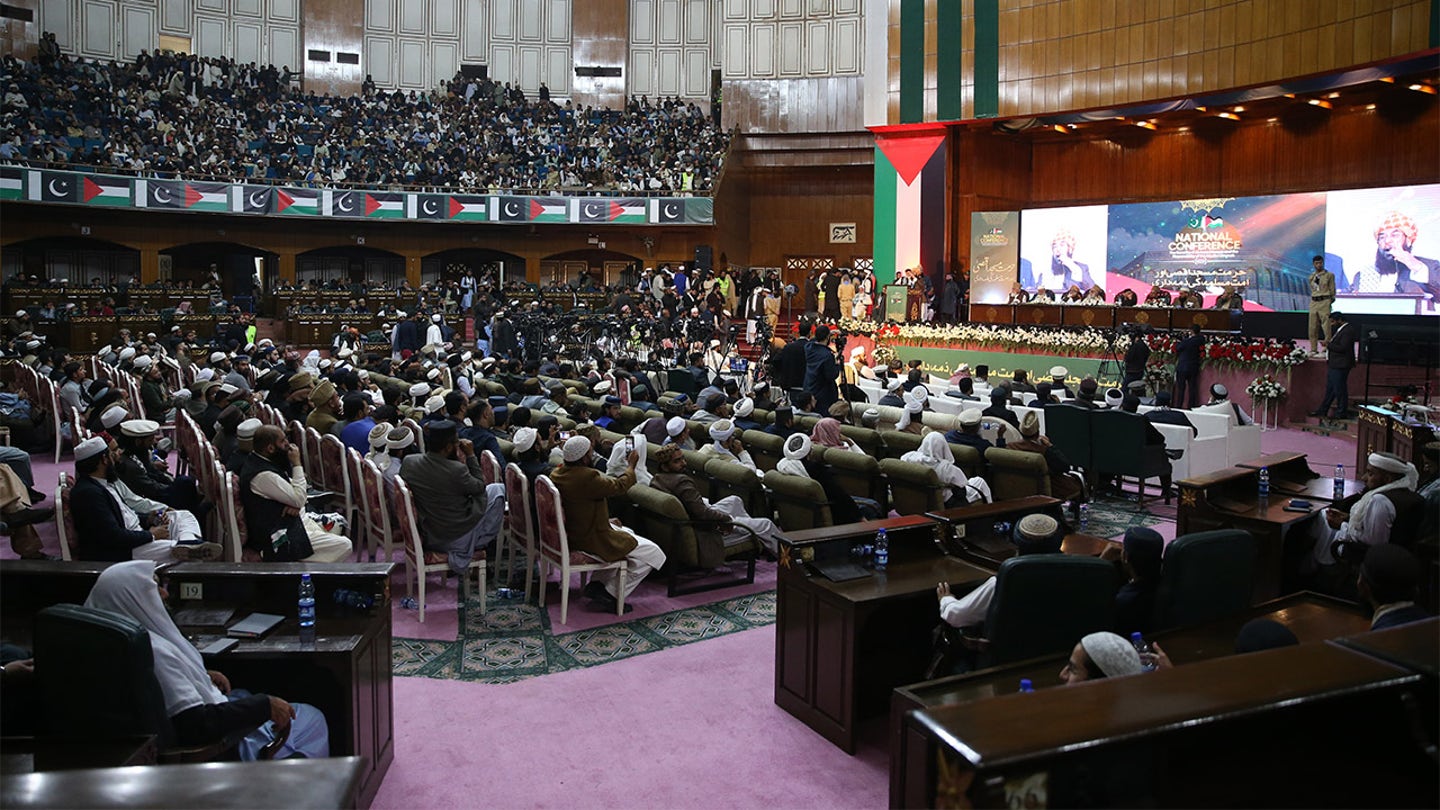
PAKISTAN’S Nuclear Leverage: Hamas Leaders Urge for a Showdown with Israel
— Leaders of Hamas and Islamic scholars gathered in Pakistan’s capital recently. They suggested that the ongoing conflict in Gaza might be stopped if nuclear-armed Pakistan were to threaten Israel. These remarks have been widely reported in Pakistani media and noted by the Middle East Media Research Institute (MEMRI).
The conference, titled “The Sanctity of Al-Aqsa Mosque and the Responsibility of the Islamic Ummah,” was put together by the “Pakistan Ummah Unity Assembly.” According to MEMRI, this assembly is a network of Islamic religious organizations.
Ismail Haniyeh, one of the main speakers at this event, called on Pakistan to take a more proactive role in resolving the Israel-Hamas conflict. He said, “If Pakistan threatens Israel, then we can halt this war. We have high hopes from Pakistan. They can compel Israel to back down.”
Haniyeh also referred to Jews as “the biggest enemy of Muslims worldwide.” This inflammatory language has raised eyebrows among international observers due to concerns about escalating tensions in an already unstable region.
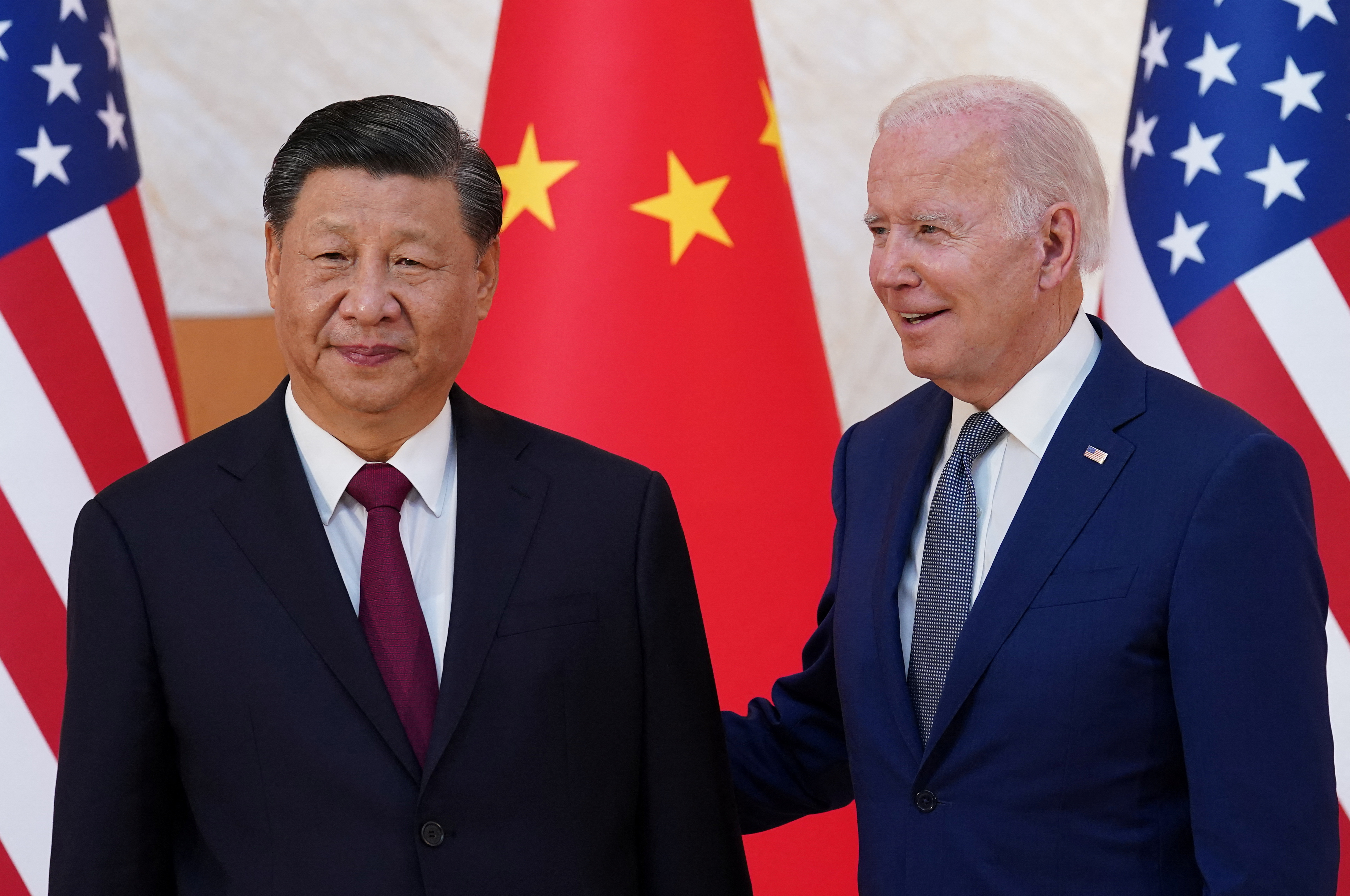
BIDEN and XI: Critical Trade Talks Amid Escalating Tensions
— President Joe Biden is scheduled to meet with Chinese President Xi Jinping in California this Wednesday. This marks their first rendezvous in a year, amidst the backdrop of strained U.S.-China relations. The world’s two largest economies will put trade and Taiwan at the forefront of their discussions.
The White House has been alluding to this meeting for some time now. It will occur on the fringes of the Asia-Pacific Economic Cooperation summit in San Francisco. Both leaders are aiming to “responsibly manage competition” and collaborate where mutual interests overlap.
Meanwhile, Treasury Secretary Janet Yellen has been engaging with Chinese Vice Premier He Lifeng for a second day of dialogue on Friday. Yellen underscored America’s aspiration for a robust economic relationship with China, while also urging Beijing to take action against firms suspected of circumventing sanctions to transact with Russia.
Yellen additionally expressed apprehensions about China’s export controls on graphite – an essential component in electric vehicle batteries – amidst escalating tensions between the nations that could see thousands protesting during the summit.
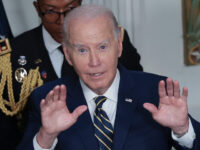
PEACE at RISK: Biden’s Push for Palestinian Consulate Jeopardizes Israel-Saudi Talks
— Last month, President Joe Biden and Israeli Prime Minister Benjamin Netanyahu held a meeting. The focus was on encouraging peace talks between Israel and Saudi Arabia. Notably, these discussions did not necessitate the establishment of a Palestinian state — a significant shift in Middle East policy. Crown Prince Mohamed bin Salman of Saudi Arabia also appeared to ease his position on the Palestine issue.
However, recent reports suggest that the Biden administration may be jeopardizing this potential peace accord. They are insisting on establishing a new Palestinian consulate in Jerusalem. This move could effectively split Jerusalem between Israel and Palestine, overturning policies set by President Donald Trump and breaking bipartisan commitments to keep the city united.
Israeli news outlet Israel Hayom has reported growing frustration among Israeli and Saudi officials with Washington’s overemphasis on concessions for Palestinians. Insiders familiar with the ongoing negotiations suggest this focus is impeding potential progress.
The primary hurdle seems to be defining the specifics of a U.S.-Saudi defense agreement. This includes whether nuclear enrichment will be allowed on Saudi soil — an aspect that Israel appears willing to accept for comprehensive peace.

ASIAN MARKETS in Chaos: Evergrande Crisis and Wall Street Woes Trigger Shockwaves
— Asian stock markets experienced a significant downturn on Monday, with Tokyo standing as the sole major regional market to register gains. This follows on the heels of Wall Street’s most dismal week in half a year, which subsequently boosted U.S. futures and oil prices.
Investor confidence was shaken due to multiple factors including worries over China’s real estate sector, a potential shutdown of the U.S. government, and an ongoing strike by American auto industry workers. European markets weren’t spared either with Germany’s DAX, Paris’ CAC 40, and Britain’s FTSE 100 all experiencing a 0.6% drop.
China Evergrande Group saw its shares plummet nearly 22% after it disclosed its inability to secure additional debt due to an ongoing investigation into one of its subsidiaries. This revelation threatens the restructuring of its staggering debt that exceeds $300 billion. In response, Hong Kong’s Hang Seng dropped 1.8%, Shanghai Composite index fell by 0.5%, while Japan’s Nikkei 225 managed to climb by 0.9%.
Elsewhere in Asia, Seoul’s Kospi dipped by 0.5%. On a brighter note though, Australia’s S&P/ASX 200 managed to claw back some ground ending with a modest

Dream Job Snatched Away Over Antidepressants: Woman SUES Police Scotland in Groundbreaking Case
— Inverness woman, Laura Mackenzie, is taking legal action against Police Scotland after her offer for her “dream job” as a police officer was withdrawn due to her use of antidepressants.
Mackenzie had successfully passed all recruitment stages, even reaching the point of undergoing a medical examination and being fitted for a uniform.
The job offer was rescinded because Police Scotland’s occupational health provider enforces a policy requiring applicants to be free of such medication for at least two years.

Allies OUTRAGED at Biden’s Controversial Decision to Supply CLUSTER Bombs to Ukraine
— The US’s decision to supply Ukraine with cluster bombs has caused international unrest. On Friday, President Joe Biden acknowledged it as a “very difficult decision.” Allies such as the UK, Canada, and Spain have voiced opposition to the weapons’ use. Over 100 countries condemn cluster bombs due to the indiscriminate harm they can cause to civilians, even years after a conflict ends.
Volodymyr Zelensky Wanted Ukraine to OCCUPY Russian Territory
— According to leaked US intelligence, Ukrainian president Volodymyr Zelensky wanted to send troops to occupy Russian villages. The leak also revealed Zelensky considered launching an attack on a vital Hungarian oil pipeline.
Ukraine DENIES Attacking Moscow or Putin With DRONE
— Ukraine’s President Zelensky denies involvement in an alleged drone attack on the Kremlin, which Russia claims was an assassination attempt on President Putin. Russia reports that two drones were downed and threatens to retaliate when necessary.
China Says it WON’T Add ‘Fuel to the Fire’ in Ukraine
— The Chinese president, Xi Jinping, has reassured Ukrainian president Volodymyr Zelenskyy that China will not escalate the situation in Ukraine and said it’s time to “resolve the crisis politically.”
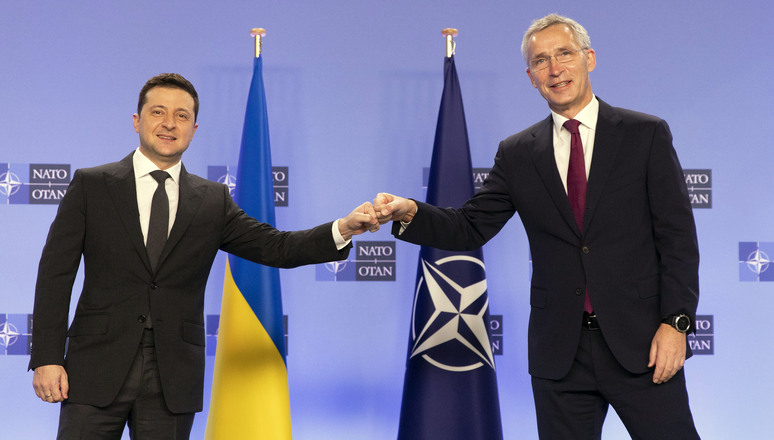
United States OPPOSES Plan for Ukraine to Join NATO
— The United States is opposing efforts by some European allies, including Poland and the Baltic states, to offer Ukraine a “road map” to NATO membership. Germany and Hungary are also resisting efforts to provide Ukraine with a path to join NATO at the alliance’s July summit.
Ukraine’s president, Volodymyr Zelenskyy, has warned that he will only attend the summit if tangible steps are presented toward NATO membership.
In 2008, NATO said that Ukraine would become a member in the future. Still, France and Germany pushed back, concerned that the move would provoke Russia. Ukraine formally applied for NATO membership last year after Russia’s invasion, but the alliance remains divided on the path forward.
Massive Chinese SURVEILLANCE Balloon Detected Flying Over Montana Near NUCLEAR Silos
— The US is currently tracking a Chinese surveillance balloon hovering over Montana, close to nuclear silos. China claims it’s a civilian weather balloon that was blown off course. So far, President Biden has decided against shooting it down.
TOO CLOSE for Comfort: Russian Warship Carrying HYPERSONIC Missiles Approaches English Channel
— Vladimir Putin has sent a Russian warship armed with cutting-edge hypersonic missiles on a course that will take it through the English Channel and into the Atlantic Ocean for “combat duty.” This will be the first Russian ship to be armed with hypersonic weapons that are capable of delivering nuclear warheads at speeds ten times the speed of sound, or almost 8,000mph.

Video
GAZA BLOCKADE Heartbreak: Innocent Families Trapped As Peace Talks Fail
— Gaza families are desperate as Israeli airstrikes continue and hope for a ceasefire fades. Hospitals can’t keep up, and people search through rubble for loved ones. Aid groups warn that food, water, and medicine are running out fast. Israel says the blockade is needed to force Hamas to release hostages and agree to peace. The United Nations disagrees, claiming the blockade breaks international law. Innocent people face danger every day from bombs, hunger, and little medical help. Talks for a ceasefire have become urgent. Israel has offered a deal — hostage exchanges in return for a pause in fighting — but Hamas refuses unless there’s a promise of lasting peace. World leaders talk about big changes after the war ends. France and the U.S. want new leadership in Gaza under the Palestinian Authority. But right now, families trapped under debris need help most as violence rages on.
More Videos
Invalid Query
The keyword entered was invalid, or we couldn't gather enough relevant information to construct a thread. Try checking the spelling or entering a broader search term. Often simple one-word terms are enough for our algorithms to build a detailed thread on the topic. Longer multi-word terms will refine the search but create a narrower information thread.
Politics
The latest uncensored news and conservative opinions in US, UK, and global politics.
get the latestLaw
In-depth legal analysis of the latest trials and crime stories from around the world.
get the latest